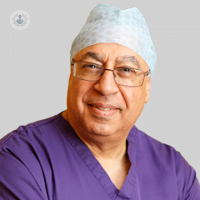When should you visit a well woman clinic?
Written by:Well-woman clinics differ across the country but have become more and more common in recent years. We spoke to expert consultant gynaecologist Dr Fakher Gendy to find out what kind of problems someone can have investigated at a well-woman clinic and what to expect from the service.

A well-woman clinic is designed to make it easier for women to access speedy diagnostic and treatment services for a range of common issues. In some cases, if you need a small procedure which requires specialist hospital equipment and facilities, the clinic can refer you on to a suitable nearby hospital.
The conditions a well-woman clinic deals with can include:
Treatment for period problems
Well-woman clinics see patients experiencing a wide range of period problems, including heavy and irregular periods, infrequent or no periods, or bleeding between periods.
Family planning
Most well woman clinics will be able to offer the full range of contraceptive treatments, including prescription of the pill, or insertion of an implant or the coil. The coil can also be provided as a treatment for heavy periods.
Fertility treatment
If you are having difficulties with getting pregnant, a well-woman clinic can provide a number of basic investigations to detect the cause of infertility. In some cases, we might refer you to a specialist fertility clinic.
Sexual problems
Sexual problems that a well-woman clinic might see include dyspareunia (pain during sex), bleeding during or after sex, or issues with low or high libido.
Infections
A well-woman clinic can investigate a range of common infections including pelvic inflammatory disease, vulval skin conditions and infections which can affect the cervix or vagina resulting in pain or itching.
Aesthetic problems
Some conditions, including skin tags, may not cause any symptoms but can nonetheless be treated if you are concerned about how they affect you aesthetically.
Screening for cervical cancer
All women between the ages of 25 and 64 are eligible for cervical screening to check for cervical cancer. This usually involves a smear test and in some cases an ultrasound scan. Some well woman clinics additionally offer screening service to younger patients aged 18-25 who are not eligible for NHS screening. This can be particularly useful if you have a family history of cancer or related gynaecological problems.
Menopause and related problems
At a well-woman clinic we can discuss with you the benefits and drawbacks of taking hormone replacement therapy (HRT) during the menopause and decide on a personalised treatment plan. We can also look at how to manage related symptoms and can offer advice and alternative treatments.
Dr Fakher Gendy runs well woman clinics in Warrington, Manchester, and Liverpool. To book a consultation with Dr Gendy, click here.


